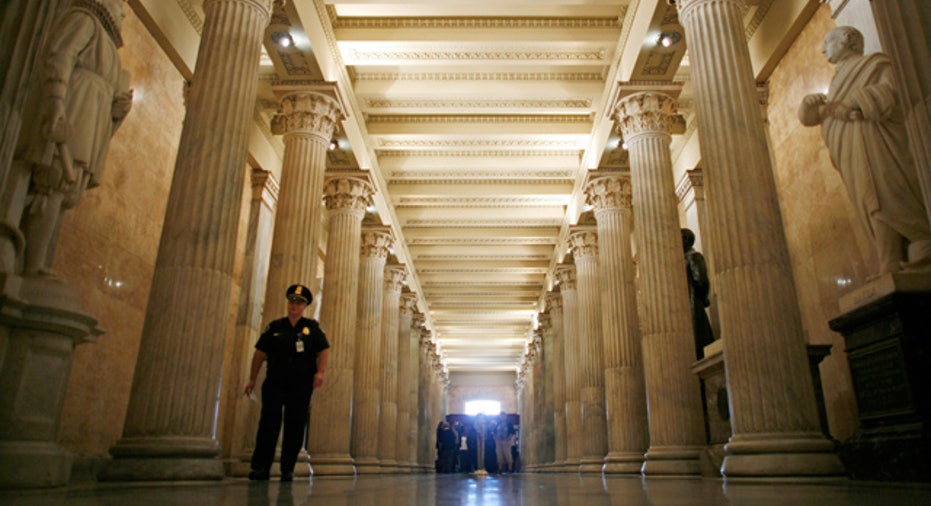Congress Races Clock for Budget Deal

With time running out, an ideological fight in the U.S. Congress over abortion and environmental issues threatened on Thursday to derail an agreement to avert a government shutdown.
The mood swung between optimism and pessimism through the day as Democratic and Republican leaders held a whirlwind series of private meetings and public news conferences to plead their case for a budget deal that would keep the government operating beyond midnight on Friday.
Senate Majority Leader Harry Reid, a Democrat, and House of Representatives Speaker John Boehner, a Republican, met for more than an hour with President Barack Obama and will return to the White House at 7 p.m. EDT (2300 GMT).
"I'm not very optimistic," Reid told reporters before the evening meeting, blaming the impasse on a Republican push for policy provisions that could block public funding of birth control and stymie environmental protection efforts.
Boehner said there were a number of issues remaining on the table "and any attempt to try to narrow this down to one or two just would not be accurate."
House Republicans approved a stop-gap bill to push the deadline back a week that includes $12 billion in additional spending cuts and assures Pentagon funding through Sept. 30.
Reid called the short-term extension a "non-starter" in the Senate because of the spending cuts, and Obama vowed to veto it.
"I did express to the president my disappointment that he suggested he would veto that," Boehner told reporters after the afternoon White House meeting. "We can get to an agreement, but we are not there yet."
Congressional negotiators met in the afternoon to try to agree on billions of dollars in spending cuts that would keep more than 800,000 government workers in their jobs when federal funding expires at midnight Friday.
Reid said fiscal conservatives aligned with the Tea Party movement were driving the process by pushing an "extreme" agenda and cheering for a shutdown.
PRESSURE ON BOEHNER
Boehner is under pressure to stand firm in the talks from Tea Party conservatives who helped fuel last year's big Republican elections gains with promises of deep spending cuts and reduced government.
"If this government shuts down, and it looks like it's headed in that direction, it's going to be based on our friends in the House of Representatives, the leadership over there, focusing on ideological matters," Reid said.
With the U.S. economy in the early stages of a recovery from the worst recession since the 1930s, the administration warned a shutdown could hit small business owners, applicants for home loans and workers who would be left without paychecks as the result of federal layoffs.
The investment firm Goldman Sachs (GS.N) estimated a government shutdown lasting more than a week could cost the economy $8 billion in missed federal spending, dragging down growth.
Vital services such as national defense, law enforcement, emergency medical care and air traffic control would continue, but national parks and museums would close and the processing of passport and a variety of loan applications would stop.
A final deal would clear the way for the House and Senate to vote on funding the federal government through Sept. 30 and put an end to a months-long fight over spending for the fiscal year that is now half over.
A government shutdown carries political risks for both parties, which could be blamed by voters for a failure to compromise. Congressional Republicans were largely blamed for the last shutdown, in December 1995 and January 1996.
A Pew Research Center poll found both parties would pay for any shutdown, with Republicans blamed by 39 percent of the public and Obama and Democrats by 36 percent. Another 16 percent would blame both sides equally.
A Democratic congressional aide said a final deal on total spending cuts for the remainder of this fiscal year would probably end up closer to $33 billion than the Republicans' $40 billion target.
Ethan Siegal, a policy analyst with the Washington Exchange, a private firm that tracks Washington for institutional investors, predicted the final package would be in the $35 billion range and there would not be a shutdown.
"We continue to believe that there will not be a government shutdown, or at least one of any great significance -- meaning anything beyond a weekend shutdown -- but we do not even think that will happen," Siegal said.



















